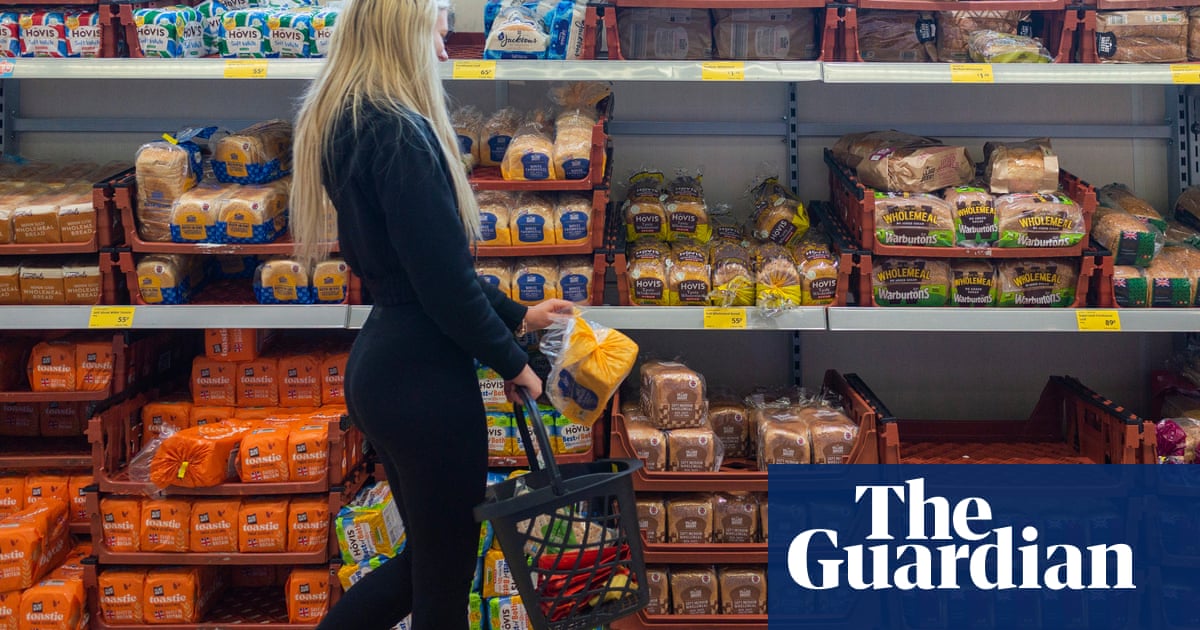
Food price rises in the UK could hit 15% this summer – the highest level in more than 20 years – with inflation lasting into the middle of next year, according to a report.
Meat, cereals, dairy, fruit and vegetables are likely to be the worst affected as the war in Ukraine combines with production lockdowns in China and export bans on key food stuffs such as palm oil from Indonesia and wheat from India, the grocery trade body IGD warns.
Products that rely on wheat, such as chicken, pork and bakery items, are likely to face the most rapid price rises as problems with exports and production from Ukraine, a big producer of grain, combine with sanctions on Russia, another key producer.
The report suggests inflation will last at least until next summer but could persist beyond that as a result of a range of factors such as additional key agricultural countries introducing export bans, trade disruption connected to Brexit, unfavourable weather in the northern hemisphere or further weakening of sterling.
The report says Britain’s food and consumer goods industry is “uniquely exposed to current pressures due to a reliance on food imports and the impacts of EU exit”.
It says the new regime has added to costs through additional administration at the EU border and other legislation changes – as well as labour shortages prompting higher wages for farmers and food producers.
James Walton, the chief economist at IGD, said: “From our research, we are unlikely to see the cost of living pressures easing soon. This will undoubtedly leave many households – and the businesses serving them – looking to the future with considerable anxiety. If average food bills go up 10.9% in a year, a family of four would need to find approximately £516 extra a year. We are already seeing households skipping meals – a clear indictor of food stress.
“We expect the mood of shoppers to remain bleak for the foreseeable future as they are impacted by rising inflation and a decline in real wages. Shoppers are likely to dial up money-saving tactics as far as possible.”
Changes in behaviour, such as switching to supermarkets’ own-label products or searching for bargains at discount chains, mean the inflation experienced by households may be closer to 9%.
Sign up to the daily Business Today email or follow Guardian Business on Twitter at @BusinessDesk
However, soaring food bills will only add to pressures on household budgets as average UK wages fall at the fastest rate in two decades, while energy and petrol costs increase to deliver the highest overall rate of inflation since the 1970s.
One in seven lower-income households say they are missing more meals, while higher-income households are more likely to plan their shopping to keep a lid on spending.
Problems with availability of some goods, such as sunflower oil, were likely to persist this year, affecting sales performance for retailers and upsetting shoppers, it said.
Source: Guardian






